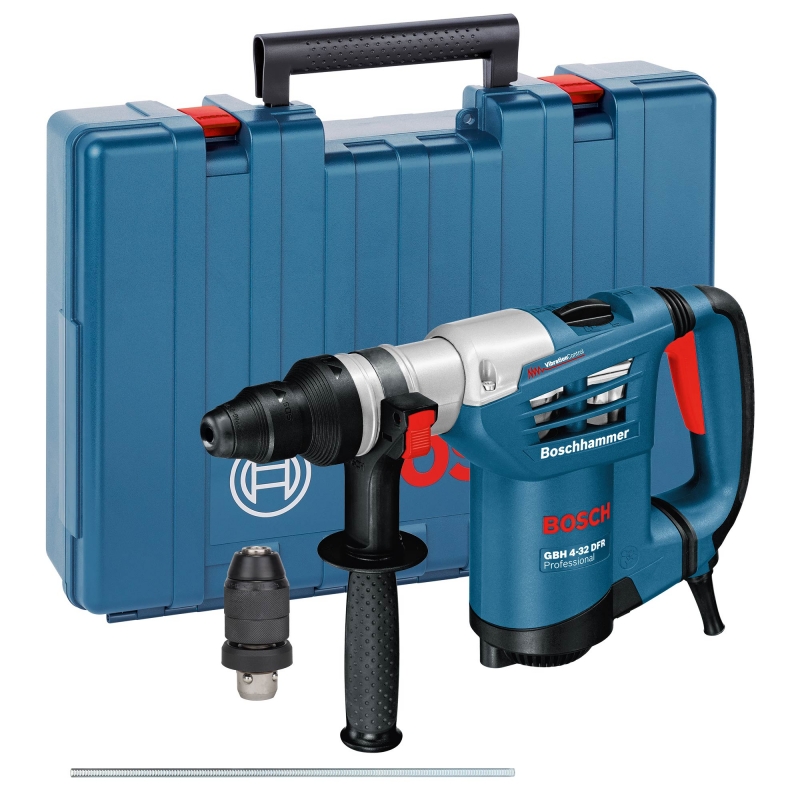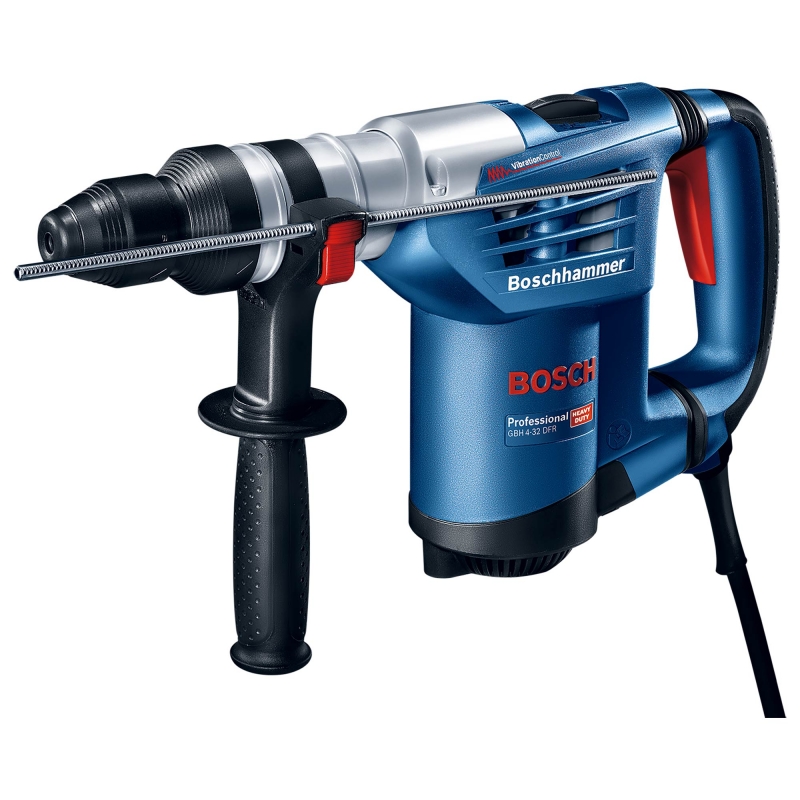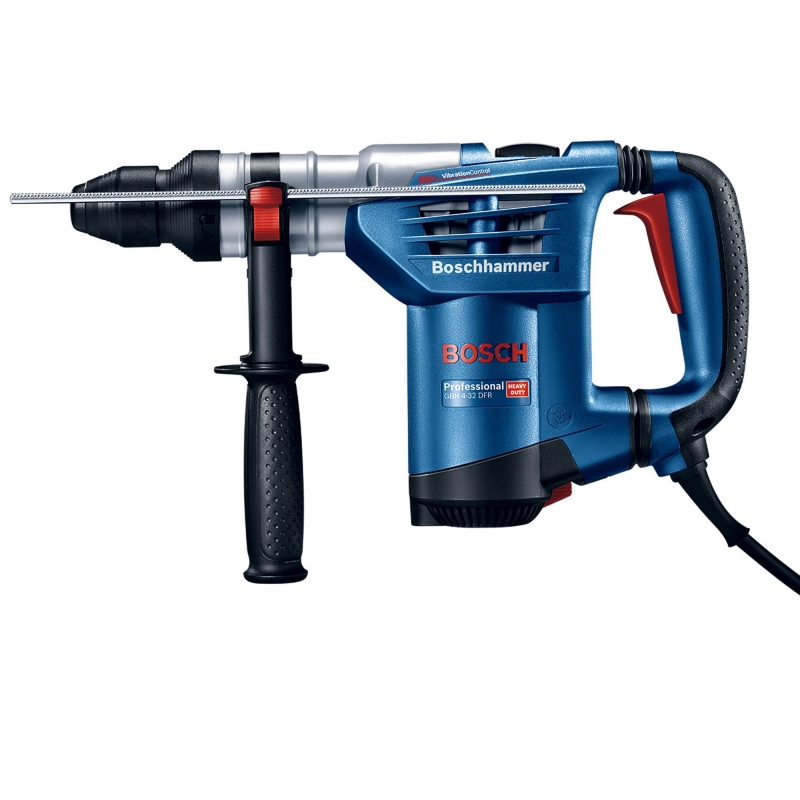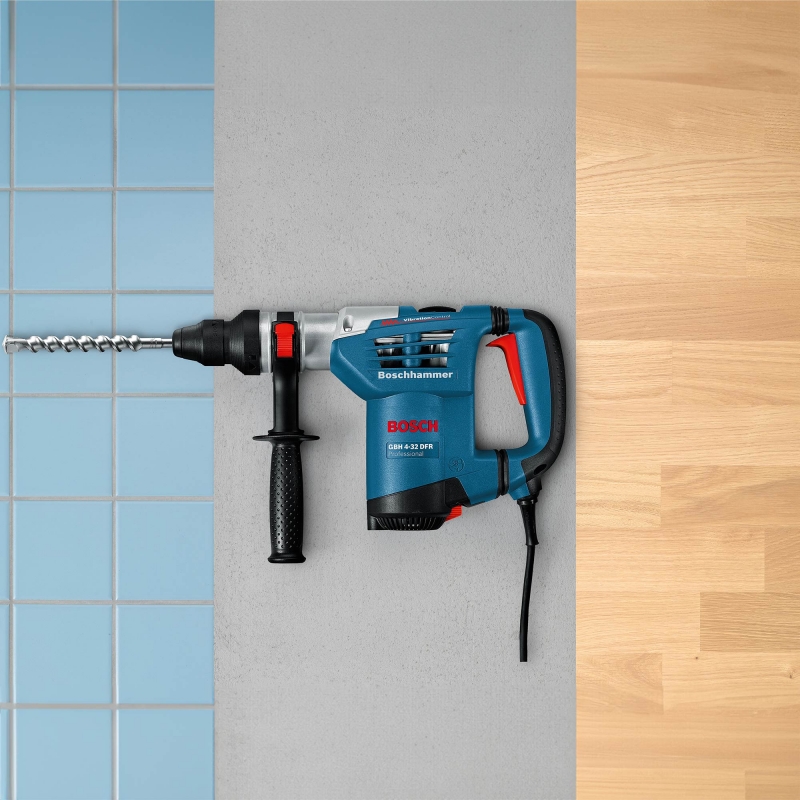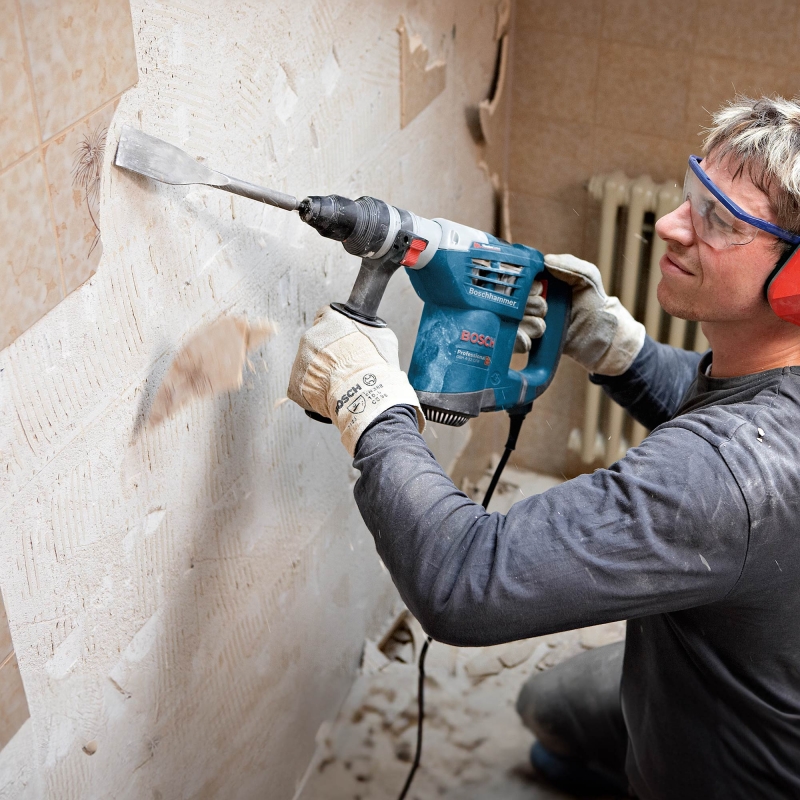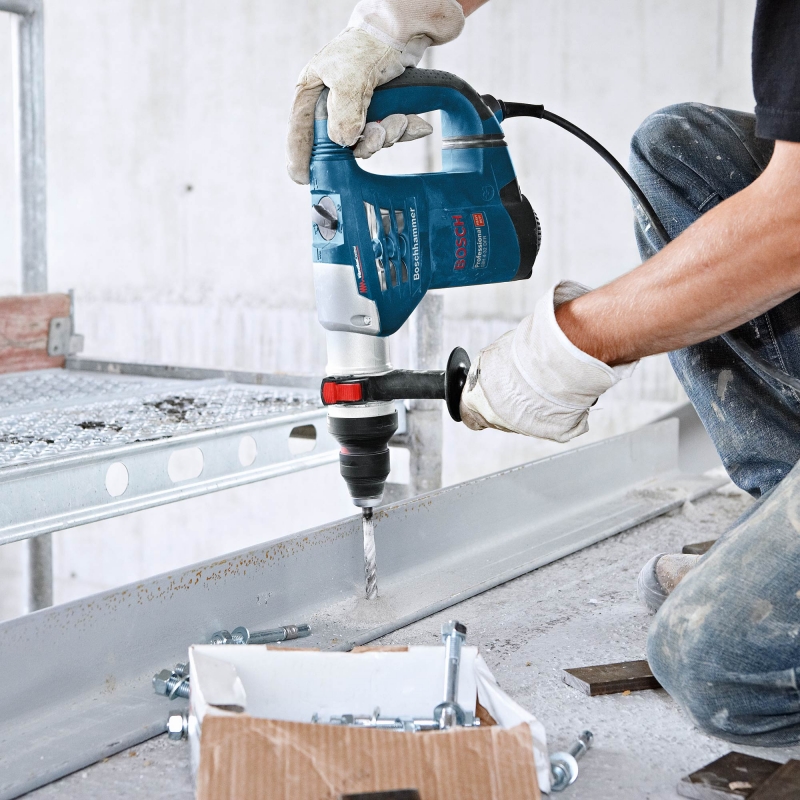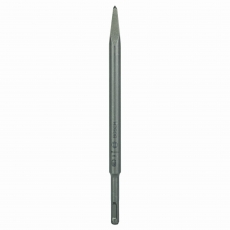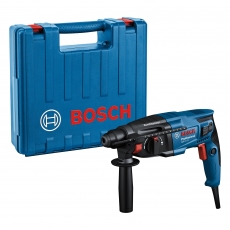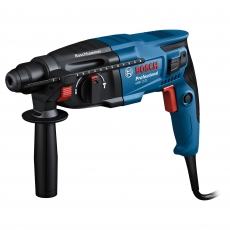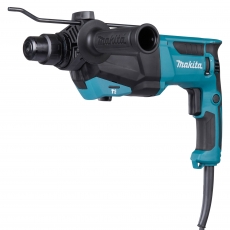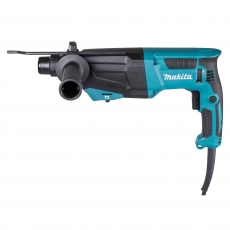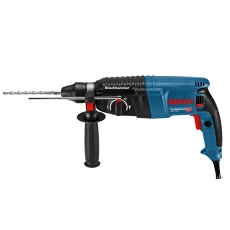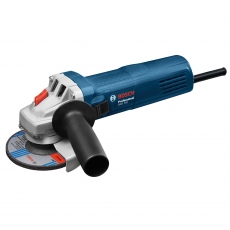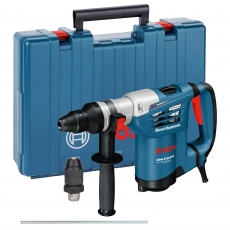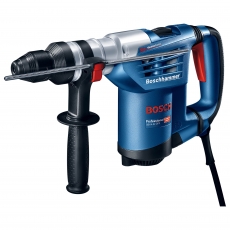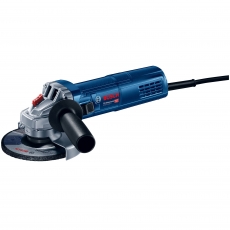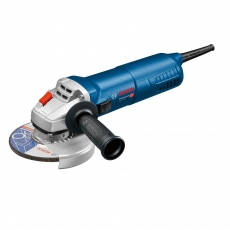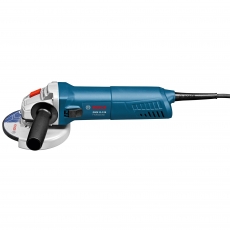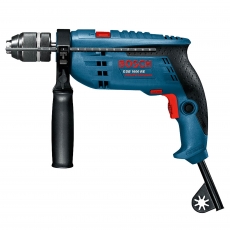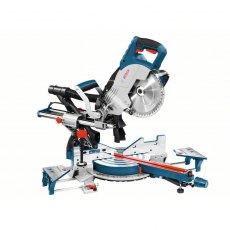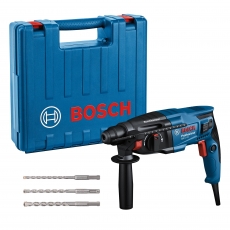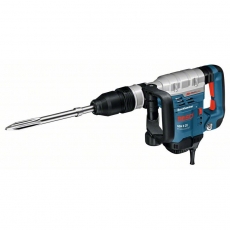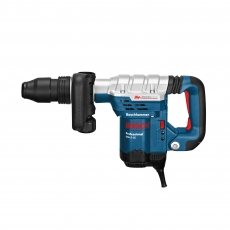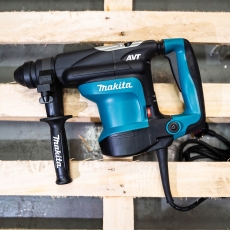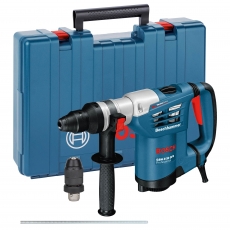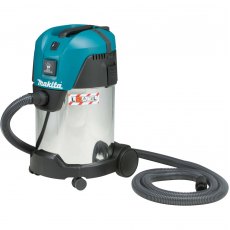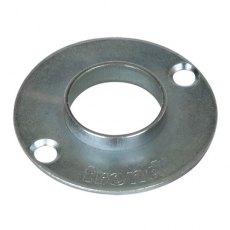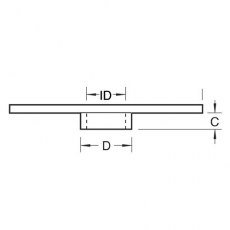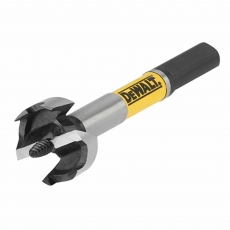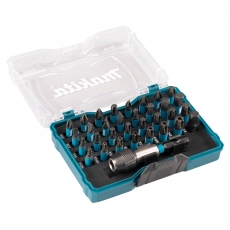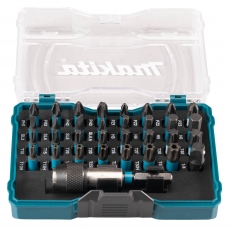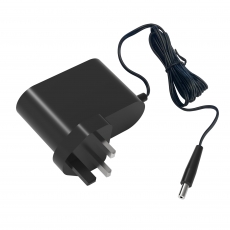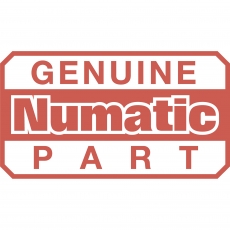BOSCH NMD2 (GBH4-32DFR) 240v Multidrill plus accessories
BOSCH NMD2 (GBH4-32DFR) 240v Multidrill plus accessories
Why Not Add
VAT (£2.04 ex VAT)
What’s Included
- 13mm Quick Change Chuck
- SDS Plus Quick Change Chuck
- Auxiliary Handle
- Depth Stop
- Carrying Case
- Voltage: 240v
Product Overview
Part No: 0611332171(BOSP0611332171)
Features & Benefits
- Wide range of applications in chiselling and drilling work and when working with a core cutter
- Drills up to 30% faster (25 mm diameter) than other tools in its class
- Low vibration levels of only 12 m/s² for less tiring work due to Bosch Vibration Control
Technical Specification
- Rated Power Input: 900 w
- Max. Impact Energy: 4.2 J
- Impact Rate at Rated Speed: 0 - 3,600 bpm
- Rated Speed: 0 - 800 rpm
- Weight: 4.7 kg
- Toolholder: SDS Plus
- Drilling in Concrete: 6 - 32 mm
- Max. Drilling in Masonry with Core Cutters: 90 mm
- Max. Drilling in Steel: 13 mm
- Max. Drilling in Wood: 32 mm
- Vibration Level (drilling): 12 m/s²
- Vibration Level (chiselling): 9 m/s²
Reviews

FAQs
SDS Plus Hammers are tools which pack a lot of punch. They’re designed for driving into masonry, which means that they need to rotate as quickly as possible. On top of that, because their primary role is as a hammer drill, the impact rate – measured in either impacts per minute (ipm) or blows per minute (bpm) is definitely an important characteristic to consider. You should also check the maximum drilling capacity, which determines how far the tool will go into the material you’re working with.
The main differences are in the kind of drill bits they use and the amount of power they can bring to a task. Slotted Drive System drills use bits with slots or indentations and a pair of sprung ball bearings at the end of the shaft, which ensure a snug fit into the chuck. The fact that SDS drills usually have faster rotations and provide more blows per minute sets them apart from a ‘traditional’ hammer drill and makes them particularly suitable for tougher drilling tasks, such as driving into concrete.
One significant difference between these kinds of tools is the size of the shank. SDS Plus bits typically have a 10mm shank, while SDS Max is 18mm. This means that an SDS Max tool can use SDS Plus drill bits with an adaptor, but SDS Max bits aren’t ‘backwards’ compatible. The other main difference is that an SDS Max drill has even more power than an SDS Plus tool and is designed for working on tougher jobs than you might use the SDS Plus machine for.
That depends entirely on the power available on site. The ToolStore UK range includes both 110v and 240v options.
Delivery & Returns
Warranty
Related Products
VAT (£99.83 ex VAT)
VAT (£104.03 ex VAT)
VAT (£124.94 ex VAT)
VAT (£51.09 ex VAT)
VAT (£414.42 ex VAT)
VAT (£73.47 ex VAT)
VAT (£106.89 ex VAT)
VAT (£107.76 ex VAT)
VAT (£391.19 ex VAT)
VAT (£114.76 ex VAT)
VAT (£455.64 ex VAT)
VAT (£473.93 ex VAT)


